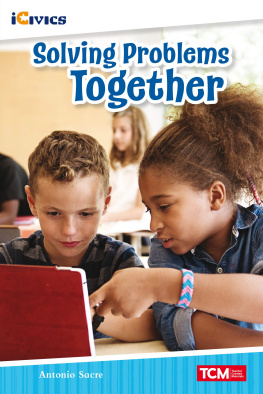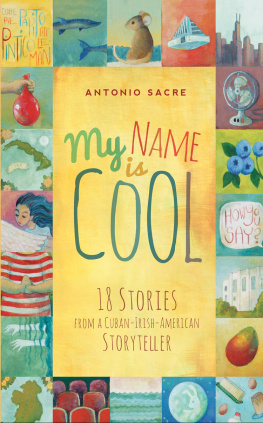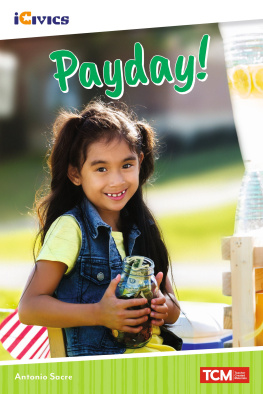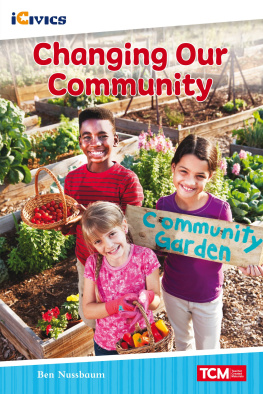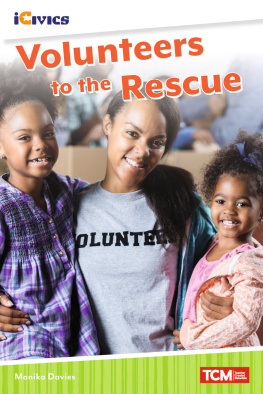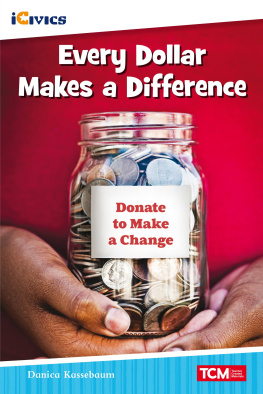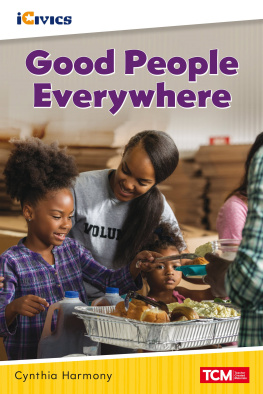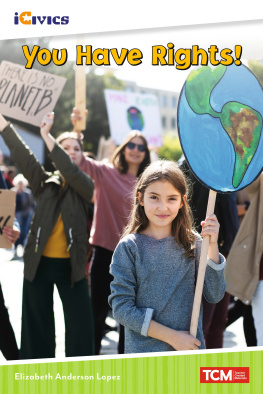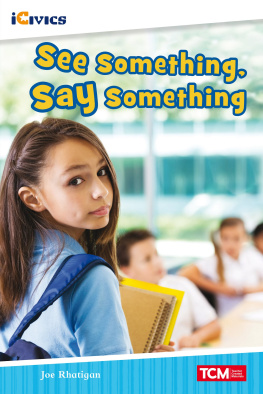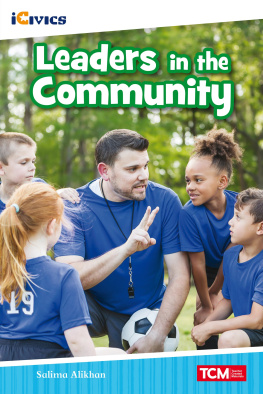cover


Read and Respond
Name one small problem you had.
How did you solve it?
What are two ideas in this book to
help the water problem?
What should you do when
problems feel too big to solve?

Antonio Sacre, M.A.
Solving Problems
Together

Reader C
onsultan
ts
Jennifer M. Lopez, M.S.Ed., NBCT
Senior CoordinatorHistory/Social Studies
Norfolk Public Schools
Tina Ristau, M.A., SLMS
Teacher Librarian
Waterloo Community School District
iCivics Consultants
Emma Humphries, Ph.D.
Chief Education Officer
Taylor Davis, M.T.
Director of Curriculum and Content
Natacha Scott, MAT
Director of Educator Engagement
Publishing Credits
Rachelle Cracchiolo, M.S.Ed., Publisher
Emily R. Smith, M.A.Ed., VP of Content Development
Vronique Bos, Creative Director
Dona Herweck Rice, Senior Content Manager
Dani Neiley, Associate Content Specialist
Fabiola Sepulveda, Series Designer
Beth Hughes , Illustrator, pages 69
Image Credits:
p15 Danielrao/iStock; p17 Philip Scalia / Alamy; p19 Library
of Congress [AER CA-298-AH-4]; p21 Torontonian/Alamy; p23 Ivoha / Alamy;
all other images from iStock and/or Shutterstock
Library of Congress Cataloging-in-Publication Data
Names: Sacre, Antonio, 1968- author.
Title: Solving problems together / Antonio Sacre.
Description: Huntington Beach, CA : Teacher Created Materials, [2021] |
Includes index. | Audience: Grades 2-3 | Summary: "Some problems are
easy to solve. Others are not so easy. When problems are big, lots of
people have to work together to help solve them"-- Provided by
publisher.
Identiers: LCCN 2020043591 (print) | LCCN 2020043592 (ebook) | ISBN
9781087605043 (paperback) | ISBN 9781087619965 (ebook)
Subjects: LCSH: Social problems--Juvenile literature. | Problem
solving--Juvenile literature. | Social action--Juvenile literature. |
Young volunteers--Juvenile literature.
Classication: LCC HN18.3 .S23 2021 (print) | LCC HN18.3 (ebook) | DDC
306--dc23
LC record available at https://lccn.loc.gov/2020043591
LC ebook record available at https://lccn.loc.gov/2020043592
This book may not be reproduced or distributed in any
way without prior written consent from the publisher.
5482 Argosy Avenue
Huntington Beach, CA 92649-1039
www.tcmpub.com
2022
Teacher Created Materials, Inc.
The name iCivics and the iCivics logo are
registered trademarks of iCivics, Inc.
ISBN 978-1-0876-2
-4

Table of Contents
Working Together ......................
Jump into Fiction:
The Dry Garden .....................
Having a Plan ..........................
Help ! Water Needed .................
Big Ideas ..................................
Doing Our Part ........................
Glossary ...................................
Index ........................................
Civics in Action ........................

Working Together
Everyone has to deal with problems. Sometimes
problems are big. Sometimes they are small. Some
are easy to solve. One person could solve them.
Others take more work. It might take more people
to help solve them. It is important to think of ways
to help. Working together is a good place to start.

Trash like this
is a problem.
Jump into
Fiction

The Dry Garden
Catalina and Mike walk in the
schools garden.
These plants look thirsty!
Catalina says.
Mike says, It hasnt rained in a
long time.

We should give them water, Catalina
adds.
They walk to the hose. Its broken!
Well, thats a problem. How can we
water the plants if the hose is broken?
asks Mike.
I have an idea! exclaims Catalina.

They walk to some children playing
tetherball.
Mike says, The plants need water, but
the hose is broken.
We can make a line of kids from
the fountain to the garden, Catalina
suggests.

Ill fill bottles. You pass them down
the line, adds Mike.
That will take a lot of kids! their
friend Hugo says.
Luckily, there are a lot of us!
Catalina says with a smile.
Back to
Nonfiction

Having a Plan
When a problem happens, the best thing to do
is come up with a plan. Plans help keep the goal
in mind. Even when a problem can be solved on
your own, it is good to have a plan. This way,
you know what to do to reach the goal.

Asking for Help
Everyone needs help sometimes.
Thats why it is always OK to
ask for help.

More Is Better
Think about a problem you have had.
Maybe you forgot where you put a toy. How
did you find it? You probably came up with
a plan to look in different places. That is an
easy problem to solve by yourself.

